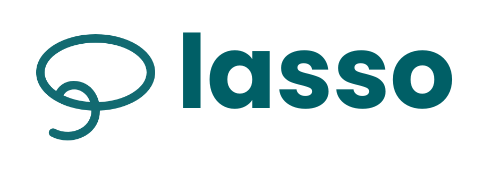Source supplies, equipment, and services while maintaining strict compliance standards
Lasso procurement software tailored for the healthcare industry addresses the critical needs of sourcing medical supplies, equipment, and services while ensuring compliance, patient safety, and operational efficiency.
Regulatory Compliance:
Embed strict standards (e.g., HIPAA, FDA, Joint Commission) into procurement workflows, ensuring medical supplies, pharmaceuticals, and equipment meet safety and legal requirements. Digital records simplify audits.
Timely Availability of Supplies:
Coordinate procurement of critical items—like PPE, medications, or surgical tools—with patient care schedules, ensuring no shortages disrupt treatments or procedures.
Cost Control:
Monitor spending on high-cost items—like imaging machines, implants, or drugs—against budgets. Analytics identify savings opportunities, such as bulk discounts or generic alternatives, without compromising quality.
Supplier Reliability:
Track vendors for delivery reliability, product quality, and compliance (e.g., sterile goods certification), ensuring a steady supply chain for essential healthcare needs.
Enhanced Traceability:
Maintain detailed records of sourced items—lot numbers, expiration dates, and supplier origins—for rapid recalls or quality assurance, critical for patient safety and regulatory adherence.
Quality Assurance:
Integrate specifications for medical-grade products into orders (e.g., sterilization standards, dosage accuracy), ensuring procured items meet clinical requirements.
Support for Patient Care:
Streamline procurement of specialized items—like prosthetics or diagnostic kits—freeing up healthcare staff to focus on patients rather than administrative delays.
Data Security:
Protect sensitive procurement data—like patient-related purchases or supplier contracts—with robust permissions and encryption, critical in a privacy-focused industry.

Get started with lasso!
Healthcare
Source supplies, equipment, and services while maintaining strict compliance standards
Lasso procurement software tailored for the healthcare industry addresses the critical needs of sourcing medical supplies, equipment, and services while ensuring compliance, patient safety, and operational efficiency.
Regulatory Compliance:
Embed strict standards (e.g., HIPAA, FDA, Joint Commission) into procurement workflows, ensuring medical supplies, pharmaceuticals, and equipment meet safety and legal requirements. Digital records simplify audits.
Timely Availability of Supplies:
Coordinate procurement of critical items—like PPE, medications, or surgical tools—with patient care schedules, ensuring no shortages disrupt treatments or procedures.
Cost Control:
Monitor spending on high-cost items—like imaging machines, implants, or drugs—against budgets. Analytics identify savings opportunities, such as bulk discounts or generic alternatives, without compromising quality.
Supplier Reliability:
Track vendors for delivery reliability, product quality, and compliance (e.g., sterile goods certification), ensuring a steady supply chain for essential healthcare needs.
Enhanced Traceability:
Maintain detailed records of sourced items—lot numbers, expiration dates, and supplier origins—for rapid recalls or quality assurance, critical for patient safety and regulatory adherence.
Quality Assurance:
Integrate specifications for medical-grade products into orders (e.g., sterilization standards, dosage accuracy), ensuring procured items meet clinical requirements.
Support for Patient Care:
Streamline procurement of specialized items—like prosthetics or diagnostic kits—freeing up healthcare staff to focus on patients rather than administrative delays.
Data Security:
Protect sensitive procurement data—like patient-related purchases or supplier contracts—with robust permissions and encryption, critical in a privacy-focused industry.



